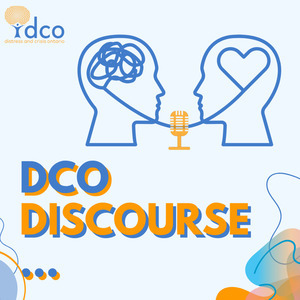Episode 46
Obsessive Compulsive Disorder - OCD
October 3rd, 2019
15 mins 51 secs
Season 1
Your Hosts
About this Episode
Many people have unwanted thoughts, worries, and behavioural routines. We may dwell on unpleasant thoughts, worry needlessly about our loved ones or bite our nails. An accurate diagnosis of Obsessive Compulsive Disorder must differentiate between those behaviours and the actual psychiatric condition. When worries consume someone, we call them "obsessions." Obsessions are uninvited or "intrusive" thoughts, urges or images that surface in the mind over and over again. To relieve the feelings of distress and anxiety, people with OCD often try to reduce their anxiety by acting out certain rituals. Many people have rituals, or specific ways of doing things. We may read the paper when we wake up in the morning, or arrange pencils and erasers in a particular order on our desk. For people with OCD, such rituals may become "stuck," and last for hours. Even though the person performing the ritual knows it makes no sense, he or she feels compelled to enact it over and over again. When taken to this extreme, rituals are called "compulsions." People with OCD are distressed by their obsessive thoughts and compulsive behaviour. They may avoid situations that could trigger symptoms, and because they are aware that their thoughts and actions are unrealistic, they may have difficulty sharing their concerns or seeking help for their problems. Mireille Huneault of the Canadian Mental Health Association in Durham, outlines in this video, the difference between mental illness and a mental health difficulty. She identifies the key components associated with Obsessive Compulsive Disorder and highlights some of the common feelings and behaviours experienced by those who suffer with OCD. Mireille provides some guidelines or tools that are helpful to distress and crisis responders when supporting individuals with concerns regarding OCD. Questions for Further Consideration: 1. How common is Obsessive Compulsive Disorder and who does it most commonly affect? OCD can begin early, starting between ages seven and 12. In fact, up to half of all adults with OCD say their symptoms started when they were children. OCD is more common in boys than girls in childhood, but into adulthood, women are affected at an equal or slightly higher rate than men. OCD occurs in 2-3% of children and adults during their lifetime. Ref: https://www.anxietybc.com/parenting/obsessive-compulsive-disorder What are the symptoms of Obsessive Compulsive Disorder? Symptoms can include: The presence of obsessions and/or compulsions; The person recognizes that the obsessions or compulsions are excessive, unrealistic, even senseless, at some point during the course of the disturbance; Obsessions and compulsions cause marked distress, are time consuming, or significantly interfere in daily activities; The content of the obsessions and compulsions is not restricted to concerns associated with another psychological disturbance such as the preoccupation with food in an eating disorder or guilty ruminations in major depression, nor are the symptoms directly caused by the physiological effects of a substance or general medical conditions. Ref: “Psychology Works” Fact Sheet: Obsessive Compulsive Disorder, Canadian Psychological Association 2014 What causes OCD and do people know when they have the disorder? Researchers don’t know exactly what causes OCD, but findings indicate that there are likely a variety of factors involved, such as family history, biology, and life experiences. Symptoms may come and go, ease over time, or worsen. People with OCD may try to help themselves by avoiding situations that trigger their obsessions, or they may use alcohol or drugs to calm themselves. Although most adults with OCD recognize that what they are doing doesn’t make sense, some adults and most children may not realize that their behavior is out of the ordinary. Parents or teachers typically recognize OCD symptoms in children. Glossary: Obsessive Compulsive Disorder: The essential features of Obsessive Compulsive Disorder are recurrent obsessions or compulsions that are severe enough to be time consuming (i.e. they take more than 1 hour a day) or cause marked distress or significant impairment. At some point during the course of the disorder, the person has recognized that the obsessions or compulsions are excessive or unreasonable [in children this feature may be absent]. (DSM-IV, 1994, p. 417) The American Psychiatric Association
